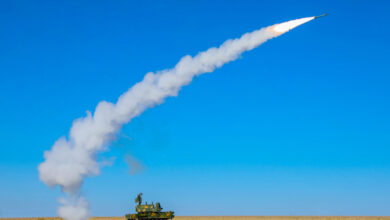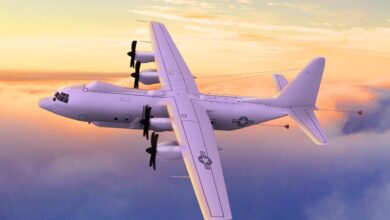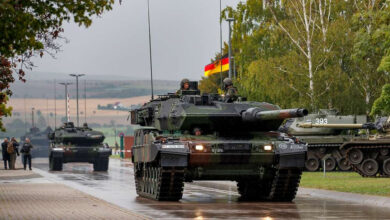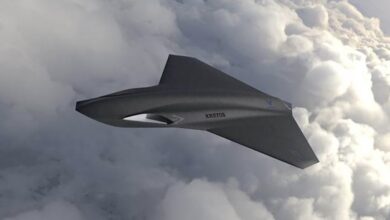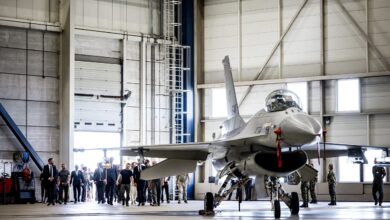Boeing Unveils ‘Evolved’ Hypersonic Aircraft Model
Boeing unveiled a “reusable hypersonic” aircraft model at the AIAA SciTech aerospace forum in San Diego last week.
The wave rider-shaped model reportedly advances the hypersonic airliner concept the company released four years ago, unofficially named Valkyrie.
Aviation Week Senior Editor Guy Norris shared images of the model on Twitter, calling it a more “realistic Mach 5 reusable air-breathing design” compared to the previous iteration and claimed that the aircraft could potentially have military and space applications.
Four years after first unveiling its hypersonic airliner concept at #AIAASciTech 2018 @Boeing has revealed a refined, more realistic Mach 5 reusable air-breathing design targeting military and space launch roles at @aiaa San Diego event pic.twitter.com/CtpxA5OJGn
— Guy Norris (@AvWeekGuy) January 4, 2022
Features
Quite similar to the previous design, the newer version differs in having a flattened fuselage, blunt nose, shorter wings, twin tails, and separated air inlets.
Boeing is supposed to have released the previous concept in reaction to Lockheed Martin’s unveiling of its SR-72 design concept, intended to be a reusable intelligence, surveillance, and reconnaissance aircraft. With the release of the latest design, the company strengthens its position in the hypersonic race.
Executive director of the National Defense Industrial Association’s Emerging Technologies Institute, Mark J. Lewis, revealed to Air Force Magazine that the Berkeley-based defense giant has been working on the aircraft for a while, claiming that the latest iteration is “a little bit closer to what they’ve been working on.”
“I think that previous configurations that they were showing at conferences and meetings did not accurately represent the configurations that they’ve been developing.”
A couple more detailed images of newly unveiled @Boeing Mach 5 reusable hypersonic concept at #AIAASciTech here in San Diego pic.twitter.com/Dp4RQJ2tYJ
— Guy Norris (@AvWeekGuy) January 4, 2022
Combined-Cycle Aircraft
Lewis said that the model is a combined-cycle aircraft with a gas turbine and scramjet engine. It uses the gas turbine engine during take-off and transitions to scramjet mode when sufficient speed has been achieved.
“Designing a propulsion flow path that goes from Mach 0 to Mach 5 or Mach 6” is a daunting task, Lewis said, and “the devil is really very much in the details. Boeing, I know, has put a tremendous amount of effort into studying that propulsion flow path. And I think the most recent model reflects their understanding of the challenge.”




